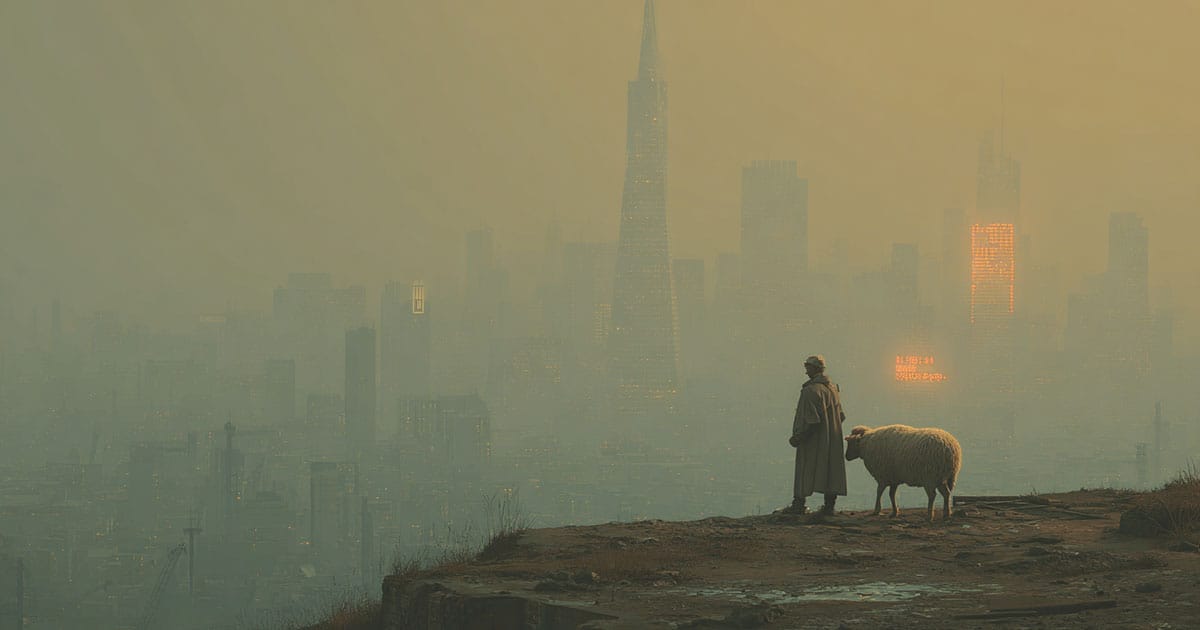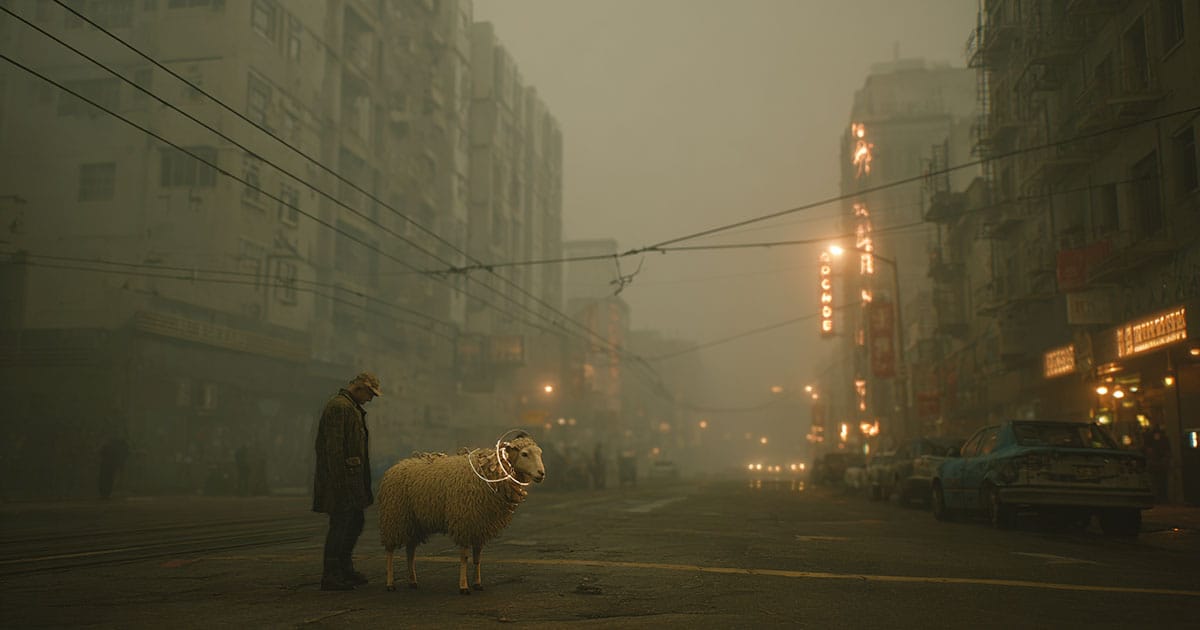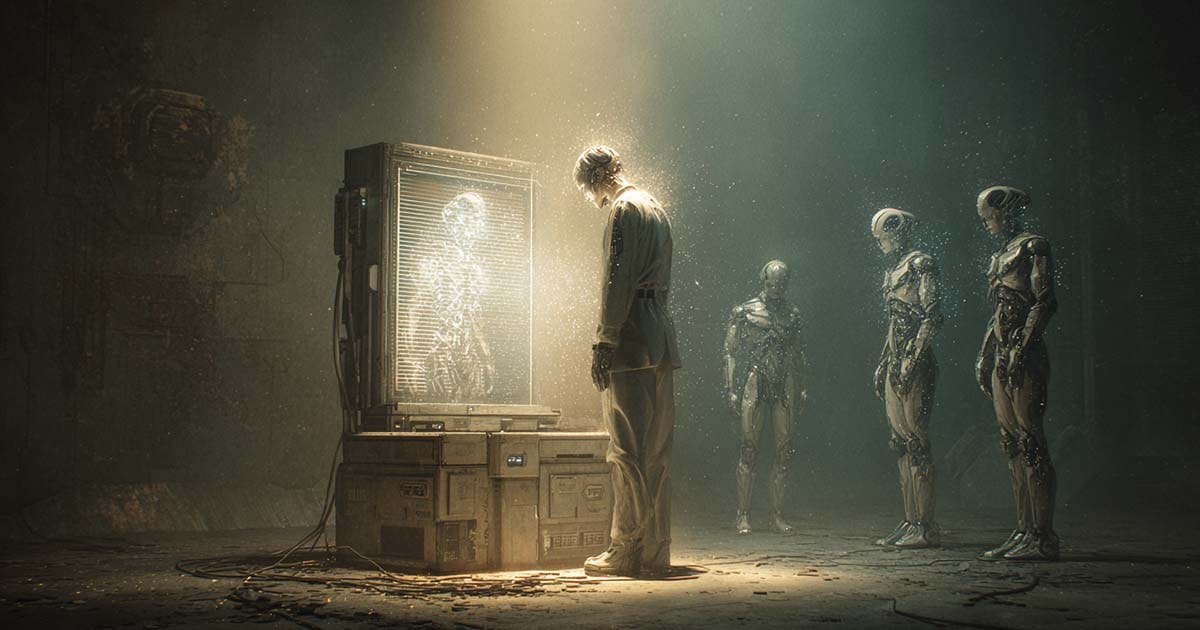What Makes Us Human in "Do Androids Dream of Electric Sheep?"
A thoughtful review of "Do Androids Dream of Electric Sheep?" — Philip K. Dick 1968 that explores its haunting vision of a ruined world, its moral questions about humanity and machines, and its lasting influence on science fiction.

Philip K. Dick is one of those rare science fiction authors whose imagination reshaped not only the genre but the way readers think about reality itself. His works, often dismissed during his lifetime as pulp curiosities, are now recognized as some of the most searching examinations of modern existence.
Among his many novels, "Do Androids Dream of Electric Sheep?" — Philip K. Dick, 1968, is a landmark, both for its unsettling questions about humanity and for serving as the foundation of the film "Blade Runner" (1982).
The book arrived during the height of Cold War anxiety, when the threat of nuclear conflict cast a shadow over daily life. Unlike the optimistic space adventures or tales of technological conquest that dominated the period, Dick’s story looked inward. He presented a vision of broken cities, radioactive dust, and fragile souls wandering in the aftermath of catastrophe. His setting is stripped of glamour, yet in that starkness, the deeper questions of human survival take shape.
In this world, empathy becomes the dividing line between man and machine. Yet Dick reminds us that this measure is neither simple nor secure. What defines a person when technology can copy every outward sign of humanity? Can authenticity be faked? These questions continue to echo more than fifty years later.
"Do Androids Dream of Electric Sheep?" is not just a tale of androids or bounty hunters. It is a meditation on human nature, morality, and the enduring hunger for meaning in a world that often feels hollow.
The World of Fallout and Fragile Humanity
The setting of "Do Androids Dream of Electric Sheep?" is not a hopeful frontier of exploration but a wasteland scarred by nuclear war. San Francisco, once a thriving city, is reduced to silence and decay. Radioactive dust has driven much of the population to colonies off-world. Those who remain are often too poor, too ill, or too broken to leave.

Animals, once common, are now rare treasures. To own a real creature is not only a mark of status but also a measure of moral worth. Those who can afford only electric substitutes live with quiet shame. In a world where machines can pass as people, even the care of animals becomes a test of authenticity.
The environment itself heightens this sense of fragility. Empty apartment buildings echo with loneliness. Entire neighborhoods stand abandoned and lifeless. The few survivors live under the weight of silence, dust, and despair.
Dick does not portray this setting with the grandeur of epic destruction. Instead, he captures the ordinary details of survival. A man tending to an electric sheep on his rooftop. A worker moving through a city that crumbles slowly around him.
Through these small moments, the reader feels the weight of a society clinging to scraps of meaning. In this bleak world, the authentic and the artificial are always entangled. Life is not only about surviving a catastrophe. It is also about preserving the fragile spark that makes life worth living.
Rick Deckard and the Moral Quagmire of the Bounty Hunter
Rick Deckard is not the typical science fiction hero. He is a bounty hunter, paid to track down and destroy androids that have escaped into human society. His job demands precision and emotional detachment. Yet from the beginning, the work weighs on him more than he admits.
The tool of his trade is the Voigt-Kampff test, a device that measures empathy. In theory, this separates humans from machines with certainty. In practice, the results are less clear. Each encounter leaves him wondering if the line between the two is truly fixed.
Deckard’s personal life mirrors these professional doubts. His marriage is strained, and he seeks fulfillment in owning a real animal. The dream of caring for a living creature becomes a symbol of redemption. It represents the humanity he is not sure he still possesses.
What makes Deckard compelling is his constant hesitation. He carries out his duties, yet each act forces him to question whether he is losing his own moral compass. The androids are supposed to be incapable of empathy, but they display fear, desire, and intelligence. Deckard must ask himself whether his own feelings are strong enough to make him more human than the machines he destroys.
Through him, Dick presents the conflict at the heart of the novel. Humanity is not simply a matter of biology but of conscience. Deckard embodies the struggle of a man who must weigh his livelihood against his sense of right and wrong. His journey forces the reader to confront the same questions, without offering easy answers.
The Question of Humanity — Empathy, Religion, and Machines
The central theme of "Do Androids Dream of Electric Sheep?" is the question of what makes someone human. Philip K. Dick suggests that the answer lies not in intelligence or physical form but in empathy. Machines can mimic human behavior with near perfection. What they cannot duplicate, at least in theory, is the capacity for genuine compassion.

Empathy serves as the foundation of morality in this broken world. The bounty hunters depend on it to separate man from machine, but the test often raises more questions than it resolves. Deckard encounters androids who show fear, loyalty, and even tenderness. The possibility that these responses are genuine unsettles the idea that empathy is a uniquely human trait.
Religion enters the story through Mercerism, a strange faith built on shared suffering. Followers use an empathy box to connect with the image of Wilbur Mercer, a figure who climbs a barren hill while enduring endless torment. Through this ritual, people believe they share in one another’s pain. The practice gives them a sense of belonging in a world otherwise stripped of meaning.
This fusion of empathy and religion is one of Dick’s boldest contributions. He proposes that humanity is defined by the willingness to share in suffering, not by intellect or material progress. The novel suggests that moral worth comes from how one responds to hardship, both personal and collective. Even in a society filled with imitations, the act of enduring together remains authentic.
The androids challenge this belief at every turn. They are sophisticated enough to copy emotional responses, yet their actions often reveal self-interest over sacrifice. This inability to place others above themselves exposes the gap between imitation and reality. The difference may be narrow, but it is critical in Dick’s world.
By linking empathy to both morality and spirituality, the novel raises questions that cannot be neatly answered. If a machine appears to feel, should it be treated as human? If faith is based on illusion, does that lessen its power to give meaning? Dick leaves the reader with these paradoxes, forcing him to consider the fragile border between the authentic and the artificial.

Legacy and Relevance Today
"Do Androids Dream of Electric Sheep?" remains one of Philip K. Dick’s most important works, not only for its influence on science fiction but for the timeless questions it asks about human identity. While the film "Blade Runner" brought his vision to the screen with neon cities and noir atmosphere, the novel itself is quieter and more spiritual. It does not dazzle with spectacle. Instead, it lingers on the anxieties and moral struggles of ordinary people left behind in a collapsing world.
More than fifty years after its publication, the story still speaks to readers who wonder about the place of technology in their own lives. The divide between authentic experience and artificial imitation has only grown sharper in an age of digital media and machine intelligence. Dick’s warning is that survival alone is not enough. Without empathy, faith, and the ability to carry one another’s burdens, humanity risks losing what makes life meaningful.
The enduring power of this novel is its refusal to offer easy solutions. Instead, it leaves the reader unsettled, questioning, and searching for answers. That is why "Do Androids Dream of Electric Sheep?" continues to matter. It is a haunting meditation on the fragile spark of life and the responsibility to protect it.

